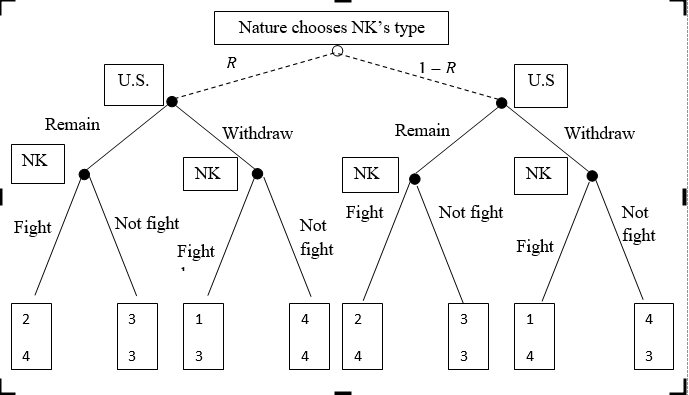How do perceptions affect the players choices? Illustrate using an example (verbal or graphical).

What will be an ideal response?
Ans: In an incomplete information game, player A might be uncertain player B’s preferences. In this case, player A’s perception of player B’s type determines player A’s choices.
An example could be a game between the United States and Iran, in which Iran is uncertain of the U.S. decision if Iran accelerates its nuclear program. With some probability the United States might retaliate militarily, and with some probability the United States might back down. If Iran were sure that the United States would respond militarily, it is better off not accelerating its nuclear program. On the other hand, if Iran were sure that the United States would back down, then Iran is better off accelerating its nuclear program. In this case, Iranian perceptions about the U.S. type play a big role in Iran’s decision about whether to accelerate its nuclear program.
You might also like to view...
Which of the following represents an element of stability in a political system?
a. weak political culture b. frequent changes in political leadership c. the existence of a variety of ways for citizens to seek and achieve policy implementation and change d. a broadly debated political and economic framework
__________ is a process that allows legislatures to put certain issues on the ballot for citizen approval and requires legislatures to seek citizen approval for certain actions by the legislature
A) The New England town meeting B) The recall C) The initiative D) The referendum E) A retention election
With the exception of which presidency, an argument can be made that a sixth, Republican-dominated party system has emerged since 1968.
A. Reagan B. Ford C. Bush D. Obama E. Nixon
In general, libertarianism
a. opposes all government action except that which protects life and property. b. supports government action to protect public morals. c. supports a strong government role in the economy. d. encourages government-initiated programs to help the needy. e. seeks to destroy inequities in government programs.